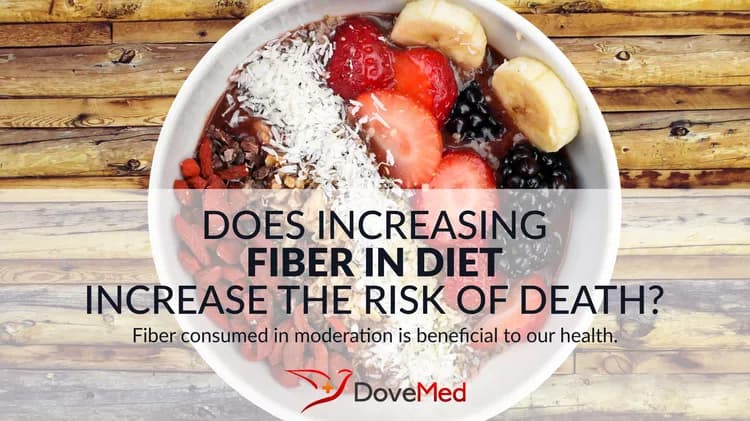Fiber helps in preventing colon and breast cancer, lowers cholesterol, reduces the chances of heart disease, wards off diabetes, cleanses the colon, and helps unplug constipation. Fiber consumed in moderation is beneficial to our health. But there are some common myths that have been debunked.
Dietary fiber is not required for maintaining perfect intestinal regularity. Fiber plays a crucial role in the growth of pathogenic bacteria in the colon. Pathogenic bacteria produce toxic byproducts and these are one of the most important factors behind inflammatory bowel disease. Dietary fiber is not capable of curing or preventing inflammatory bowel diseases, instead they can make them worse. Studies of many primitive societies have established the fact that low-fiber diet prevents cancer as well as intestinal diseases, as discussed extensively by Weston Andrew Price in his book “Nutrition and Physical Degeneration”.
Doctors, nutritionists and dieticians refer to insoluble fiber as “roughage” or “bulk” because of the fact it makes stools bulky as well as rough. When large stools pass through a narrow passage of anal canal, they tear its delicate lining resulting in bleeding. Large stools may lead to hemorrhoidal disease and anal fissures. Lacerations caused to anal canal do not heal. Far more dangerous bleeding may take place due to ulcerative colitis, caused by prolonged contact of undigested fiber as well as large stools with the colorectal mucosal membrane.
For years it has been thought that a high fiber diet lowers the risk of colon cancer. A Harvard study that observed 80,000 female nurses for about 16 years found that dietary fiber has no association in lowering the risk of either colon cancer or polyps (a precursor to colon cancer), rather it is one of the primary causes of polyps, which could be sometimes a life-threatening condition.
Fiber helps in curing constipation. Current research points towards the fact that high fiber diet may actually worsen constipation. The role of dietary fiber in treating constipation is overstated. A diet low on fiber has been proven not to be the most significant cause of constipation. The success of fiber consumption as treatment can be stated as being only average.
Konstantin Monastyrsky, author of the book named The Fiber Menace mentioned that regular intake of high fiber diet can lead to dangerous consequences, like hemorrhoids and fissures. It may further contribute to the development of autoimmune diseases like ulcerative colitis and Crohn`s disease.
High consumption of fiber reduces the risk of heart diseases. This is a myth that has been proven wrong. Dr. Alan R. Gaby wrote a brief article titled Problem with American Heart Association “Step 1” diet published in 2002. In this article it is mentioned that high fiber diet lowers HDL cholesterol and low HDL cholesterol concentration is a strong and independent predictor of cardiovascular disease risk. Elevated total cholesterol or LDL cholesterol is not that strong indicator as low levels of HDL cholesterol are. Women trying to lower their serum cholesterol by taking high fiber diet are actually increasing their risk of heart disease. Various studies have also pointed out that high fiber diet can lead to diabetes. The reason behind this development is that a high fiber diet may be rich in grain products, which are inflammatory and disastrous for blood sugar balance.
Thus, is all fiber bad? Soluble fiber, the fiber present in fruits and vegetables are gentle on our digestive tract. Small amounts of this fiber type acts as food alike for the friendly and unfriendly bacteria, which are present in our digestive tract, known as prebiotic.
Consuming fiber in moderate amounts is certainly recommended and advised.
References:
http://www.biblelife.org/fiber.htm (accessed on 12/2/2015)
http://www.gutsense.org/fibermenace/fm_transcript.html (accessed on 12/2/2015)
http://www.gutsense.org/fibermenace/fm_chapter1.html (accessed on 12/2/2015)
Helpful Peer-Reviewed Medical Articles:
Kendall, C. W., Esfahani, A., & Jenkins, D. J. (2010). The link between dietary fibre and human health. Food Hydrocolloids, 24(1), 42-48.
Aune, D., Chan, D. S., Lau, R., Vieira, R., Greenwood, D. C., Kampman, E., & Norat, T. (2011). Dietary fibre, whole grains, and risk of colorectal cancer: systematic review and dose-response meta-analysis of prospective studies. Bmj, 343, d6617.
Krishnamurthy, V. M. R., Wei, G., Baird, B. C., Murtaugh, M., Chonchol, M. B., Raphael, K. L., ... & Beddhu, S. (2012). High dietary fiber intake is associated with decreased inflammation and all-cause mortality in patients with chronic kidney disease. Kidney international, 81(3), 300-306.
Kaczmarczyk, M. M., Miller, M. J., & Freund, G. G. (2012). The health benefits of dietary fiber: beyond the usual suspects of type 2 diabetes mellitus, cardiovascular disease and colon cancer. Metabolism, 61(8), 1058-1066.
Related Articles
Test Your Knowledge
Asked by users
Related Centers
Related Specialties
Related Physicians
Related Procedures
Related Resources
Join DoveHubs
and connect with fellow professionals


0 Comments
Please log in to post a comment.